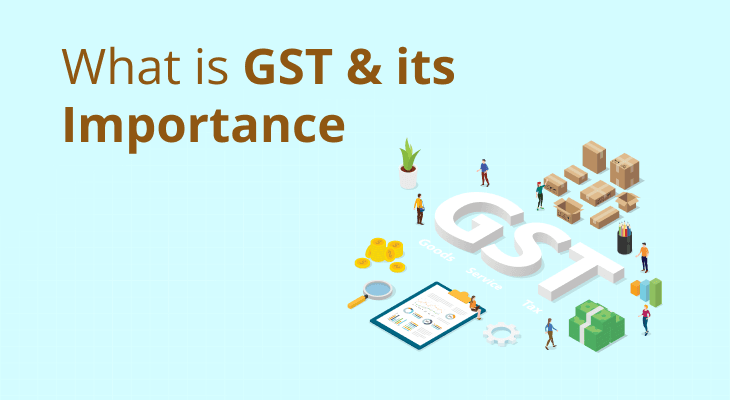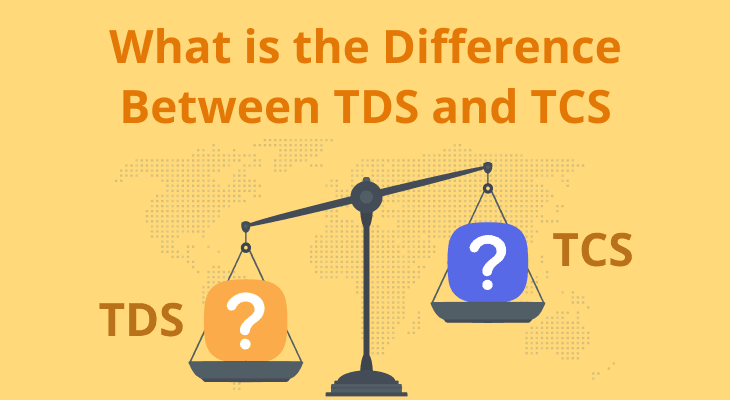
Tax Filing Rules: Should You File Returns If Your Income Is Under the Exemption Limit?
Filing income tax returns (ITR) is generally associated with those who earn above the taxable income limit set by the government. However, many individuals who fall below the exemption threshold may still benefit from filing a tax return. While it may not be mandatory in many cases, filing a tax return voluntarily can offer financial and legal advantages. This guide will explain:
- Who is exempt from filing tax returns
- Why filing ITR is still beneficial even with lower income
- Specific situations where it is legally required
- How to file ITR online when your income is below the taxable limit
Let’s break down the rules and advantages of filing ITR, even when your income falls below the exemption threshold.
Income Tax Returns: Filing Even with Income Below Taxable Limits
What Is the Income Exemption Limit for Tax Filing?
The income tax exemption limit depends on your age and taxpayer category as per the latest tax rules:
Category | Annual Income Exemption Limit |
Individuals below 60 years | ₹2.5 Lakh under the old tax regime ₹3 Lakh under the new tax regime |
Senior Citizens (60-80 years) | ₹3 Lakh under the old and new tax regimes |
Super Senior Citizens (Above 80 years) | ₹5 Lakh under the old tax regime ₹3 Lakh under the new tax regime |
Note: In the Union Budget 2025, the limit for basic exemption has been increased to ₹4 Lakh from ₹3 Lakh for all age groups under the new tax regime.
If your total annual income falls below these limits, you are not legally required to file an ITR. However, certain conditions may still make filing necessary.
When Is Filing Tax Returns Mandatory Even Below the Exemption Limit?
You must file an ITR even if your income is below the taxable limit in the following cases:
- If You Have Foreign Assets or Income
- If you own foreign bank accounts, investments, or properties, tax authorities require you to declare them, even if your income is below the exemption limit.
- If You Have Earned Capital Gains
- Even if your total income is below the exemption limit, any capital gains from selling stocks, mutual funds, or property require you to file a tax return.
- If You Have Spent More Than ₹2 Lakh on Foreign Travel
- If you have spent ₹2 Lakh or more on foreign trips, you must file an ITR regardless of your income level.
- If You Have Deposited Large Amounts in a Bank Account
- Large bank transactions trigger a requirement to file an ITR to explain the source of income. The limits are ₹50 Lakh for a savings account and ₹1 Crore for current accounts.
- If Your Electricity Bill Exceeds ₹1 Lakh in a Year
- High-value electricity consumption indicates significant financial activity, making ITR filing necessary.
- If You Have Claimed a TDS Refund
- If your employer or bank deducted income tax (Tax Deducted at Source) and your total income is below the exemption limit, filing an ITR is required to claim a refund.
Benefits of Filing Returns with Income Below the Exemption Limit
Even if your income is below taxable levels, there are several advantages to filing ITR voluntarily:
1. Helps You Claim Tax Refunds
If TDS was deducted from your salary, interest income, or investments, you must file an ITR to claim a refund. Banks deduct TDS on Fixed Deposits (FDs) when interest exceeds ₹40,000 (₹50,000 for senior citizens up to March 31, 2025. From April 1, 2025, it is ₹1 lakh), even if your total income is below the exemption limit.
For example: Suppose your bank deducted ₹5,000 as TDS on FD interest, but your total income was just ₹2 Lakh. Filing an ITR allows you to claim a refund of ₹5,000.
2. Establishes a Financial Record for Loans & Credit Cards
Many banks require past ITRs to approve loans, credit cards, or large financial transactions. Filing ITR regularly helps build financial credibility.
For example: If you plan to apply for a home loan in the future, banks may ask for your last 2-3 years' ITR records, even if you are a freelancer or earning below the taxable limit.
3. Required for Visa Applications
Many countries require ITR proof for visa processing, especially for business or long-term travel visas. Having regular tax filings improves your chances of visa approval.
For example: If you apply for a US or UK visa, the embassy might ask for past 2 years’ ITR records to verify financial stability.
4. Helps Carry Forward Capital Losses
If you have capital losses from stocks, real estate, or mutual funds, filing an ITR allows you to carry forward these losses for future tax adjustments.
For example: if you sold stocks at a loss in 2025, you can use this loss to reduce tax liability on future gains — but only if you file an ITR.
5. Avoids Future Tax Scrutiny
Regular ITR filing prevents tax authorities from flagging your financial transactions. If your income rises in later years, having a consistent tax record avoids unnecessary scrutiny from the Income Tax Department.
When It’s Beneficial to File Tax Returns Despite Exempted Income
Filing an ITR is beneficial even if it’s not mandatory, particularly for:
- Freelancers & Gig Workers: If you work as a freelancer, even with an annual income below the exemption limit, filing ITR ensures smooth future financial planning.
- Students Earning Part-Time Income: Filing ITR early helps in financial record-building for future career opportunities.
- Homemakers with Investment Income: If you earn from FDs, mutual funds, or rental properties, filing ITR helps claim tax benefits and refunds.
- Retired Individuals with No Pension: Filing ITR ensures smooth inheritance and estate planning, making financial documentation simpler.
How to File Tax Returns When Your Income Is Below the Exemption Limit
If you decide to file an ITR voluntarily, follow these steps:
- Step 1: Collect Required Documents:
- PAN & Aadhaar Card
- Bank Statements
- Income Proof (Salary Slips, FD Interest Certificates, Capital Gains Statements)
- Form 16 (if applicable)
- Step 2: Log in to the Income Tax e-Filing Portal
- Visit www.incometax.gov.in.
- Click on ‘File Income Tax Return’.
- Select ITR Form (Usually ITR-1 for salaried individuals, ITR-2 for capital gains).
- Step 3: Fill in Income Details
- Enter salary, interest income, capital gains (if any).
- Verify tax deductions and exemptions.
- Step 4: Claim Tax Refund (If Applicable)
- If TDS was deducted, mention it under ‘Tax Paid’ to claim a refund.
- Step 5: Submit & E-Verify
- ✔ Complete Aadhaar-based e-verification or upload signed ITR-V.
Conclusion
Even if your income is below the taxable limit, filing an income tax return online has multiple benefits. Whether you need loan approvals, tax refunds, visa processing, or financial credibility, an ITR serves as proof of income and financial stability.
Voluntarily filing ITR ensures you stay financially prepared and tax-compliant, preventing future legal or financial hassles. If you earn from multiple sources or have tax-deducted income, filing an ITR is always a wise decision.
FAQ
Is it mandatory to file an income tax return if my income is below the exemption limit?
No, if your total income is below the exemption limit, filing a tax return is not mandatory. However, certain conditions, such as having foreign assets, claiming TDS refunds, or making high-value transactions, may still require you to file an ITR.
Can I file an ITR voluntarily even if my income is not taxable?
Yes, you can file an ITR voluntarily. Doing so helps establish financial proof, makes it easier to apply for loans, serves as income documentation for visa applications, and allows you to claim refunds on TDS deductions from salary, bank interest, or other sources of income.
What happens if I don’t file an ITR despite meeting the criteria for mandatory filing?
If you are required to file an ITR due to foreign assets, capital gains, or high-value transactions but fail to do so, you may receive a notice from the Income Tax Department. Non-compliance can lead to penalties, legal scrutiny, or difficulties in financial transactions in the future.
Can I get a tax refund if I file an ITR with income below the exemption limit?
Yes, if tax was deducted at source (TDS) on salary, fixed deposits, or other earnings, filing an ITR allows you to claim a refund. For example, if your bank deducted TDS on interest earnings even though your total income was below the exemption limit, you can recover the deducted amount.
Does filing an ITR help if I plan to take a home or personal loan in the future?
Yes, filing an ITR strengthens your financial profile and helps in loan applications. Banks and financial institutions often require the last two to three years' ITR records as proof of stable income when assessing your eligibility for home, car, or personal loans.
What are the benefits of filing an ITR for freelancers and gig workers with low income?
Freelancers and gig workers often do not receive Form 16, making it crucial to file an ITR as income proof. Even if their earnings are below the exemption limit, filing a return helps with future financial planning, tax refunds, and credibility for bank loans or business expansions.
If I made capital gains but my total income is below ₹2.5 lakh, do I need to file an ITR?
Yes, you must file an ITR if you have earned any capital gains from selling stocks, mutual funds, or property, even if your total income is below ₹2.5 Lakh. Capital gains are taxable separately, and filing an ITR helps in carrying forward losses to offset future gains.
Do homemakers or students with minor investment income need to file ITR?
Homemakers or students with income from interest, dividends, or capital gains should file an ITR if they wish to claim refunds or report financial activities. While not mandatory, filing an ITR establishes income history, which may be beneficial for future investments or credit applications.
How can I file my ITR if I earn below the taxable limit?
To file an ITR, log in to the Income Tax e-filing portal, select the relevant form (usually ITR-1 for salaried individuals), enter income details, verify tax deductions, claim refunds if applicable, and submit the form. Finally, complete the e-verification process through Aadhaar OTP or net banking.
Is there a penalty for filing an ITR late if my income is below the exemption limit?
If filing an ITR is not mandatory for you, there is no penalty for late filing. However, if you are required to file due to conditions like capital gains, high-value transactions, or foreign assets, missing the deadline may lead to fines, notices, or difficulties in future tax compliance.


